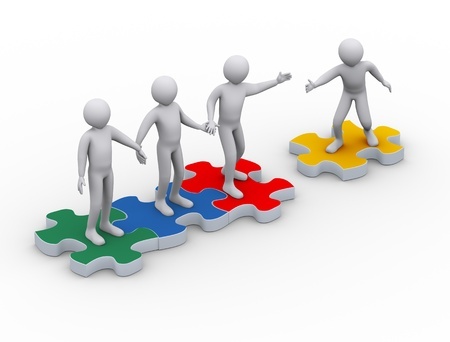- The First Aid badge you earned while in Girl or Boy Scouts?
- Taking CPR classes in high school or during swim lessons?
- Keeping a First Aid kit in your house, car or disaster survival box?
What do you think of when considering Mental Health First Aid (MHFA)?
Kind of puzzling, isn't it?
I was unsure as well, when I signed up for NAMI's Mental First Aid course. As a Mental Health Advocate and Christian Counselor, I was intrigued by the course description. I found it on Facebook under Events.
Course Description:
Just as CPR helps you assist an individual having a heart attack — even if you have no clinical training — Mental Health First Aid helps you assist someone experiencing a mental health related crisis. In the Mental Health First Aid course, you learn risk factors and warning signs for mental health and addiction concerns, strategies for how to help someone in both crisis and non-crisis situations, and where to turn for help.Taught by two certified instructors, Mental Health First Aid teaches about recovery and resiliency – the belief that individuals experiencing these challenges can and do get better, and use their strengths to stay well.
Learn how to apply the Mental Health First Aid action plan in a variety of situations, including when someone is experiencing panic attacks, suicidal behaviors, acute psychosis or reaction to trauma. The opportunity to practice – through role plays, scenarios, and activities – makes it easier to apply these skills in a real-life situation.
The Mental Health First Aid course originated in Australia. The United States is celebrating the 10 year anniversary of MHFA "Be One in a Million" campaign.
“With one in four Americans experiencing a mental health or addiction disorder each year, the National Council is committed to making this important training as common as CPR,” said Susan Blue, National Council board chair and president and CEO of Community Services Group.
Fighting Stigma is the hardest part of guiding those with Mental Health Issues to seek help or for finding help. Many find that fighting stigma is actually harder than fighting the illness.
Per the Washington Post, "According to the Centers for Disease Control and Prevention, there were 41,149 suicides in 2013, making suicide the 10th-leading cause of death in the United States."
Many people with Mental Health Issues suffer in silence rather than face discrimination or ridicule. Stigma appears in many negative forms: prejudice, discrimination, fear, distrust, stereotyping. Stigma affects quality of care.
There are so many misconceptions, myths, and preconceived notions about Mental Illness that clouds the ability for someone with mental health issues to receive proper care.
The MHFA program seeks to
help dispel the misconceptions surrounding Mental Health issues. Even
after receiving certification in Mental Health First Aid, I must assess my
own preconceived notions, attitudes, concerns, and beliefs regarding mental illness
so that I can effectively offer assistance.
The most important skill
to have is being fully in the present and listening. One of the
biggest complaints from those with Mental Health issues is that no one takes
the time to listen to them. By being fully present and truly listening can
be the most effective help when guiding the distressed individual to support
and treatment options.
What I learned during my
training for Mental Health First Aid was the ACTION PLAN.
Just like in CPR, the
action plan is C-A-B (Chest Compressions - Airway - Breathing) the MHFA
has an action plan, the mnemonic ALGEE.
A - Assess for risk of
suicide or harm
L -
Listen non-judgmentally
G - Give reassurance
and information
E -
Encourage appropriate professional help
E - Encourage self-help
and other support strategies
In using Mental Health
First Aid it's important that we:
Preserve life when a
person may be a danger to self or others
Provide help to prevent
the problem from becoming more serious
Promote and enhance
recovery
Provide comfort and
support
It's important to note
that MHFA does not teach us to be therapists, but to offer and provide initial
help and how to guide a person toward appropriate treatments and other
supportive help.
Always keep this in mind: IT'S
IMPORTANT TO CARE FOR YOURSELF FIRST!
It's common to feel worn
out, frustrated, or even angry after providing MHFA to person in distress. Make
sure you are able to talk to someone, de-stress, but always respect the
person's privacy!
If you or someone you
know would like to take this course, contact your local NAMI office. Or, if
you'd like, you can contact me and I will answer your questions and give you
more information.

